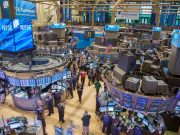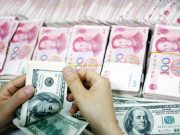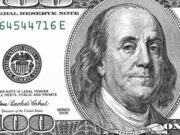Related Content: WHITE HOUSE INSIDER: ‘TRUMP’S NEXT MOVE WILL SHOCK THE WORLD’ Here’s exactly what’s going to happen.
The numbers don’t lie, but your elected officials sure seem to be hoping you won’t notice them.
While Congress debated President Trump’s sweeping tariff policies throughout 2025—policies that sent markets into violent swings and left ordinary Americans wondering if their retirement accounts would survive—members of the House and Senate were doing something extraordinary: They were trading. A lot.
In 2025, despite elevated market volatility, the Nasdaq Composite gained 1.8%, the S&P 500 climbed 2.93%, and the Dow Jones Industrial Average surged 5.08%. But some investors had an advantage the rest of us didn’t: they were making the rules.
Let me show you exactly what I mean.
The Trading Frenzy: A System Built for Insiders
According to Capitol Trades data, more than 100 members of Congress made around 10,000 trades per year, with 113 members making 9,261 trades in 2024 involving 706 million shares or other assets. And 2025? It’s on pace to be a record year, with 7,810 trades involving 362 million shares just through July.
Editor’s Note: Bill Gates sold 500,000 shares of Microsoft. Jeff Bezos filed to sell Amazon shares worth $4.8 billion. Warren Buffett just liquidated billions of shares. What is going on? It’s something we haven’t seen for more than a century… [Full Story]
Think about that. While inflation ravaged Main Street and working families struggled to keep up with rising costs, your representatives in Washington were frantically clicking “buy” and “sell” on their brokerage accounts.
The most active traders in 2025 tell the whole story:
Rep. Josh Gottheimer (D-N.J.) led the pack with 526 trades totaling $91,050,000 in volume. Rep. Nancy Pelosi (D-Calif.) followed with 17 trades worth $37,750,000. Rep. Scott Franklin (R-Fla.) made 69 trades totaling $5,993,000. Sen. Tommy Tuberville (R-Ala.) logged 202 trades worth $5,531,500, and Sen. Markwayne Mullin (R-Okla.) made 71 trades totaling $4,407,000.
These aren’t small, set-it-and-forget-it portfolios. This is active trading—the kind that requires attention, research, and, most importantly, information.
The Tariff Timing That Raises Eyebrows
Here’s where it gets really interesting. Between February 13 and April 9, 2025, President Trump was playing economic chess with the entire world through his tariff announcements. During this 55-day period of high economic uncertainty, 53 members of Congress made over 2,200 stock trades valued between $34.9 million and $140 million.
Editor’s Note: Massive transfer of government-owned land, minerals, and energy is set to hit the market… Here’s how to profit starting with one $10 company… [Full Story]
Let that sink in. During the exact window when tariff policy—policy these same lawmakers could influence—was causing market chaos, they were actively repositioning their portfolios.
Campaign Legal Center researchers noted that “although each individual transaction may not represent insider trading or a clear conflict of interest, it is abundantly clear that many lawmakers were focused on protecting their bottom lines.”
Representative Marjorie Taylor Greene provides a perfect case study. In October 2025 alone, she disclosed purchases of Adobe, Amazon (twice), Exelon, and the iShares Bitcoin Trust. When questioned about buying numerous stocks before Trump announced a pause on tariffs that sent stock prices significantly higher, Greene told reporters: “I think that criticism is laughable. President Trump has been talking about tariffs for decades.”
Really? Because the rest of the market seemed shocked when those tariff announcements came.
What They’re Buying: A Window Into Tomorrow’s Legislation
The collective portfolio of Congress reads like a roadmap of where policy is headed. Over the past year, Nvidia received 184 purchases from Congress members totaling at least $6,894,000. Microsoft saw 183 purchases totaling at least $13,950,000 from 24 different members. Amazon attracted 238 purchases worth at least $5,240,000.
Why does this matter? Because these same lawmakers sit on committees that regulate these exact companies and industries.
Representative Nancy Pelosi’s January 2025 trades included call options for Amazon, Alphabet, Nvidia, Tempus AI, and electric utility Vistra. Her position in Tempus AI alone was already up 92.05% shortly after purchase.
Pelosi’s net worth is estimated at $272.5 million, the second-highest of all members of Congress behind Sen. Rick Scott (R-Fla.) at $548.8 million.
Senator Tommy Tuberville has logged 1,334 trades since assuming office in January 2021, with an estimated net worth of $12.83 million and numerous holdings showing double-digit gains.
The Outrageous Returns That Prove the Point
Here’s the part that should make every American furious: Quiver Quantitative’s Congress Buys Strategy—which simply tracks and mimics Congressional stock purchases—has returned 37.57% compound annual growth rate since inception, with a 32.96% return over the past year.
Read that again. A strategy that does nothing but copy what members of Congress buy has returned 37.57% annually. For context, Warren Buffett’s Berkshire Hathaway has averaged about 20% annually over his career, making him one of the greatest investors of all time.
Are we really supposed to believe that these politicians are just naturally better investors than Warren Buffett? Or is something else going on here?
The Law That Doesn’t Have Teeth
The Stock Trading on Congressional Knowledge Act (STOCK Act) requires U.S. Senators and Representatives to publicly file and disclose any financial transaction within 45 days of its occurrence.
Forty-five days. That’s a month and a half AFTER they’ve already made their trades. By then, the market has already moved. The information is stale. And what happens if they don’t file? A small fine that’s pocket change to people worth hundreds of millions of dollars.
Members of Congress are not prohibited from trading stocks that involve companies that could be affected by legislation they are considering or companies they oversee through committee assignments. That’s right—they can trade in the very companies they regulate.
While insider trading laws do apply to members of Congress, information gained from their work may not meet the legal definition of insider information. It’s a convenient loophole, isn’t it?
The Bipartisan Push for Reform (That Will Probably Fail)
To their credit, some members of Congress recognize this is corrupt. In September 2025, a bipartisan group led by Texas Republican Rep. Chip Roy and Rhode Island Democrat Seth Magaziner unveiled new legislation to ban lawmakers from trading individual stocks.
The legislation would require lawmakers to sell all individual stocks within 180 days, with newly elected members required to divest before being sworn in. Members who fail to divest would face a fine equivalent to 10% of the stock’s value, with the ban extending to spouses and dependent children.
House Speaker Mike Johnson, who doesn’t own any individual stock, supports a ban. House Minority Leader Hakeem Jeffries has endorsed recent legislation. President Trump has also backed the idea.
So why hasn’t it passed? Because the same people who would be affected by the law are the ones who have to vote on it. It’s like asking the fox to redesign the henhouse security system.
Treasury Secretary Scott Bessent told Bloomberg he supported a ban, citing Democrats for having “eye-popping returns,” though he noted that Republican lawmakers have similarly garnered attention for outsized returns.
What This Means for You
This isn’t just about fairness, though the unfairness should enrage you. This is about the fundamental structure of American capitalism and whether our markets are legitimate.
When the people making the rules can profit from those rules before the rest of us even know what’s coming, we don’t have a free market. We have a rigged casino.
Consider what happened during the tariff chaos of 2025. President Trump used the International Emergency Economic Powers Act to impose tariffs ranging from 10% to 125% on virtually every trading partner, triggering market swings and recession fears. These policies affected every sector of the economy.
Now ask yourself: If you were sitting in classified briefings about upcoming tariff announcements, and you knew which countries would be hit hardest, which industries would be protected, and when the announcements would come—wouldn’t you have an advantage over every other investor in America?
That’s not a hypothetical. That’s what happened.
The Bigger Picture: A System in Terminal Decline
Editor’s Note: The America you knew is dying in front of you… Here’s your financial lifeline [Full Story…]
This Congressional trading scandal is a symptom of a much larger disease: the complete corruption of American institutions.
We’re living through the collapse of trust in every major institution—government, media, finance, healthcare. And it’s not paranoia. It’s pattern recognition.
The same government that tells you inflation is 3% while your grocery bill doubles is the same government whose members are getting rich trading on information you’ll never see. The same regulators who are supposed to protect you from Wall Street are rotating through the revolving door between government and Goldman Sachs.
The dollar’s reserve currency status—the foundation of American power—is eroding precisely because the world is watching this corruption in real time. Central banks have been dumping U.S. Treasury bonds and buying gold in record amounts, with net global central bank purchases totaling approximately 6,700 tonnes from 2015 to 2024—17% of all the gold ever mined.
They can see what you’re seeing: a system that’s rotten from the inside out.
What You Should Do
Related: If you have an account with Chase, Bank of America, Citigroup, Wells Fargo, or U.S. Bancorp…
Please Watch This Video Immediately.
First, demand reform. Call your representatives. Demand they support legislation banning Congressional stock trading. Make it clear that this is not a partisan issue—it’s a corruption issue.
Second, recognize that you’re playing in a rigged game. The people with the best information will always beat you. That doesn’t mean you shouldn’t invest—it means you need to be strategic about it.
Focus on companies with durable competitive advantages that can survive policy chaos. Avoid trading on news, because by the time you hear it, Congress already traded on it weeks ago. Build a diversified portfolio that can weather storms you won’t see coming.
Third, prepare for more instability. When the people running the system are looting it on their way out, the system isn’t going to get more stable. It’s going to get worse.
Gold, Bitcoin, and real assets will matter more as faith in paper currency and corrupt institutions continues to erode. That’s not conspiracy theory—it’s observable reality.
The Personal Side
I’ve spent my entire career studying markets and helping people protect their wealth. I’ve seen boom and bust cycles, scandals and reforms, crashes and recoveries.
But this moment feels different. The brazenness of it all—the complete abandonment of even the appearance of integrity—tells me we’re further along in the collapse than most people realize.
Your representatives aren’t even trying to hide it anymore. They’re trading millions while debating policies that will affect those exact trades, and when caught, they shrug and say “everyone talks about tariffs.”
This isn’t how healthy republics behave. This is how empires end.
I don’t know if we’re heading for 1929 or 1789, but I know we’re heading somewhere uncomfortable. The best thing you can do is acknowledge reality, protect your family’s finances, and demand better from the people you elect.
Because if we don’t, they’re going to keep trading—all the way until there’s nothing left to trade.
To your wealth,
Tom Anderson
Editor, Wall Street Watchdogs
Wall Street Watchdogs is committed to uncovering the truth about financial markets and helping individual investors prepare for systemic risks that mainstream media won’t discuss. We receive no compensation from the companies or assets we analyze. This article is for educational purposes only and should not be construed as investment advice.











